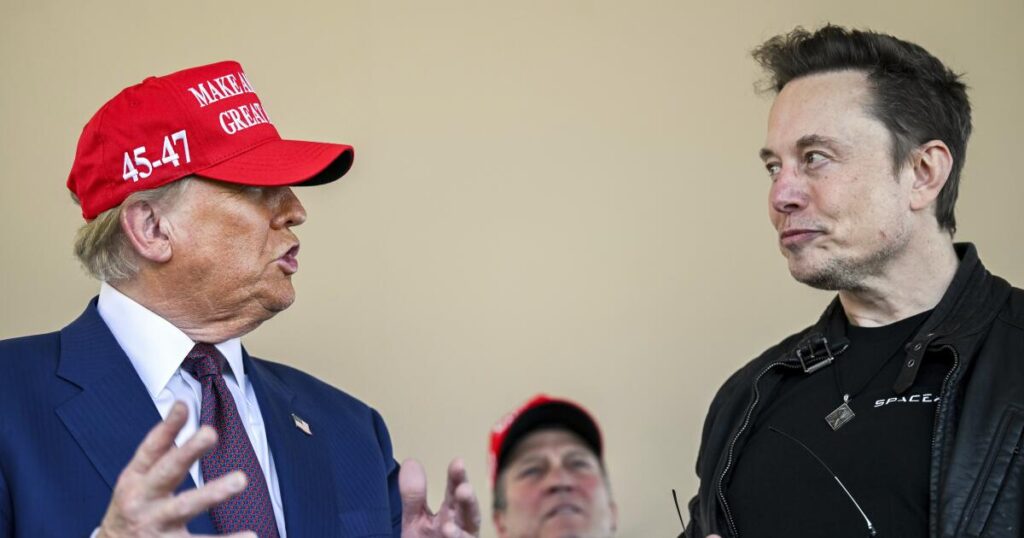WASHINGTON — Can Elon Musk close a federal agency, send its employees home and halt spending programs that were approved by Congress?
Yes, at least for now.
That question and answer have shaken Washington because they highlight the stark difference between conservative constitutional governance and one-man rule led by the president.
Musk described the U.S. Agency for International Development, which distributes humanitarian aid abroad, as “a criminal organization.” It is a “viper’s nest of radical left Marxists who hate America,” he wrote on X, his social media platform. “Time for it to die.”
President Trump agreed, saying it has been “run by a bunch of radical lunatics. And we’re getting them out.”
Their criticisms could have prompted the Republican-led Congress to sharply cut funding for USAID or perhaps vote to eliminate the agency entirely.
But Musk and Trump moved to shut it down, at least temporarily, without involving Congress.
The Constitution gives Congress the power to pass laws, collect taxes and spend money, and it gives the president the duty to “take care that the laws be faithfully executed.”
But Trump has shown no inclination to adhere to the separation of powers that gives a lead role to Congress.
Instead, in his first two weeks back in the White House, he made clear he is determined to run the government based on executive decrees, not by proposing and passing conservative laws in Congress.
And he gave Musk, the world’s richest man, the authority to root out what he sees as wasteful spending throughout the government.
Musk and Trump hinted their next target may be the U.S. Department of Education.
Democrats were alarmed to learn that Musk had been given the authority to examine the spending records held by the Treasury Department. They said that would include all those who receive payments from Social Security, Medicare, Medicaid or similar federal programs as well as tax refunds.
“Before our very eyes, an unelected shadow government is conducting a hostile takeover of the federal government,” said Senate Minority Leader Charles Schumer (D-N.Y.).
But the Democrats admitted there was little they could do other than sound the alarm.
“Trump and Musk have absolutely zero legal authority to withhold funds” that were approved by Congress, said Sen. Patty Murray (D-Wash.). “It’s up to our Republican colleagues to stand up to this.”
But even if Congress stands aside, the Trump administration’s effort to block already-approved federal spending may be halted in the courts.
On Monday, U.S. District Judge Loren L. AliKhan in Washington extended a temporary restraining order that set aside the budget order which sought to freeze some federal spending.
She did so by concluding that the administration’s order conflicted with the Constitution.
“The appropriation of the government’s resources is reserved for Congress, not the executive branch,” she wrote in a 30-page opinion. “The legislature’s power of the purse is the ultimate check on the … power of the executive.”
She said that the order to freeze approved spending “attempted to wrest the power of the purse away from the only branch of government entitled to wield it.”
At some point, administration lawyers are likely to appeal to the D.C. Circuit Court and then the Supreme Court, but they may wait for a more favorable case.
Trump had said during the campaign that he planned to challenge the laws that prohibit the president from impounding or refusing to spend money that had been appropriated by Congress.
